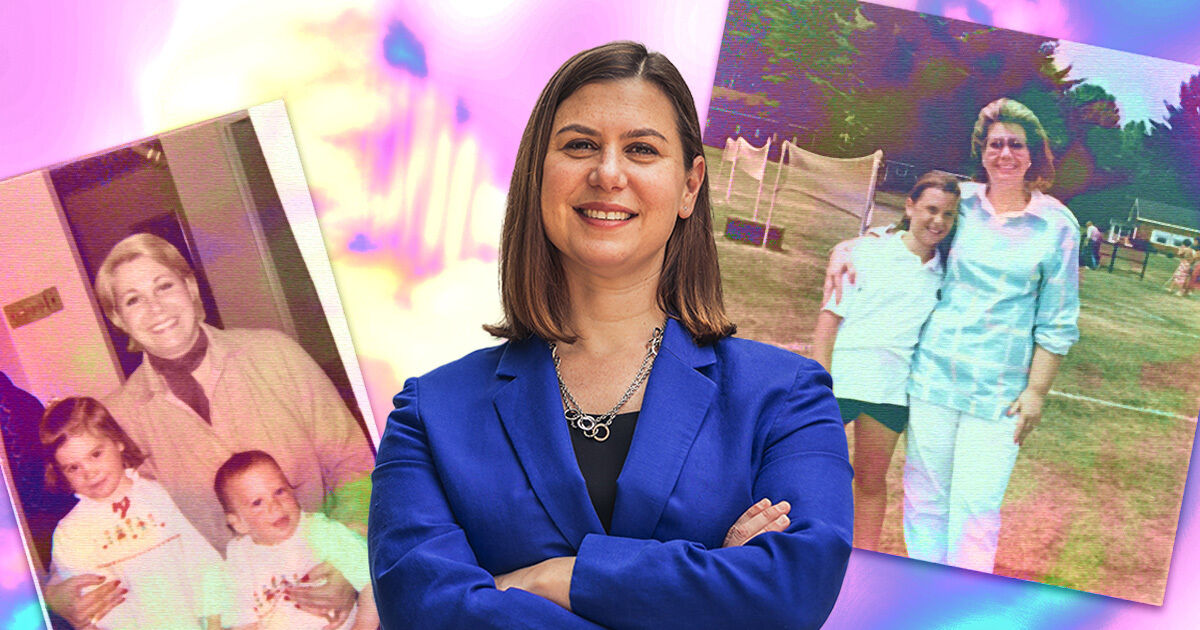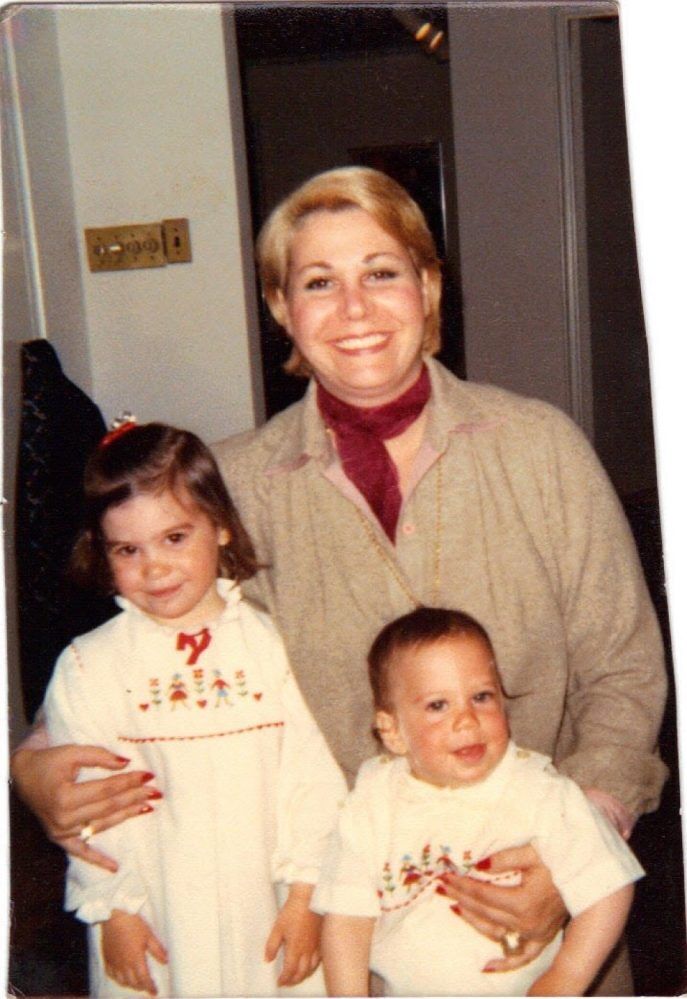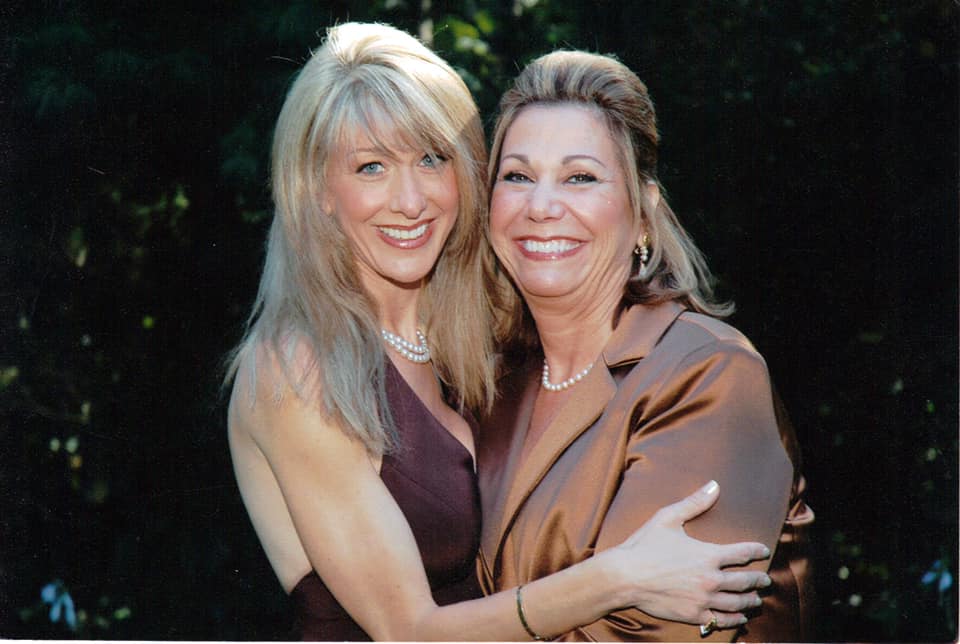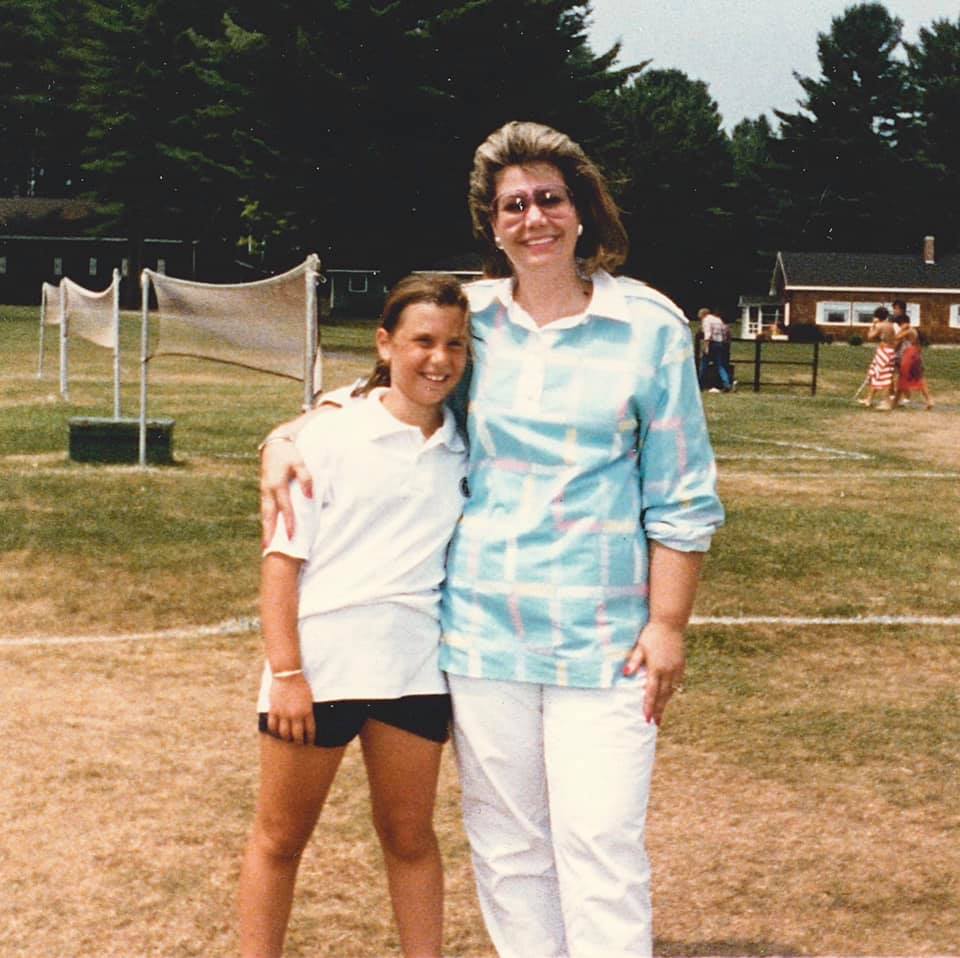
Senator Elissa Slotkin (D-MI) became a Democrat because of the AIDS crisis.
Throughout the ’80s and ’90s, the junior Senator from Michigan grew up surrounded by out gay adults she considered family. Her mother, the late Judith Slotkin, divorced her father, Curt Slotkin, and came out as gay in 1986. She and her brother moved in with their mom, and their home soon became a gathering place for Detroit’s covert but vibrant LGBTQ+ community.
Related
10 years after the first “Free Mom Hug,” the homegrown group embraces thousands nationwide
Free Mom Hugs now has chapters in every state and just held its second national conference in Texas.
At the same time, AIDS was rampant. Sen. Slotkin had to watch her mother care for dying friends while a homophobic presidential administration did nothing to help. “A huge part of my political awakening came through the experience of people that I loved and I cared about dying from really horrible symptoms of AIDS,” she told LGBTQ Nation.
Insights for the LGBTQ+ community
Subscribe to our briefing for insights into how politics impacts the LGBTQ+ community and more.
Subscribe to our Newsletter today
Her father, a longtime Republican, was a big Ronald Reagan fan, and for a while, she saw no reason to disagree with his worldview. But the administration’s indifference to the widespread suffering of those with AIDS changed everything for her.
“When my mom’s community would be over at our house or helping my brother and I make Halloween costumes for our dog … I overheard this whole narrative from that time: that the government was not investing in research to find a treatment or a cure for AIDS. I feel like that was the first political conversation that I heard, listened to, and absorbed.”
“I just remember thinking to myself, if the government isn’t investing in research to help cure this thing, then I’m the opposite of whatever is doing that. If Reagan refused to put money into the NIH [National Institutes of Health] to help find treatments and cures, then I was the opposite of whatever Reagan was. It was the first time I thought to myself, ‘Maybe I’m a Democrat.’”
Sen. Slotkin’s political career has been largely inspired by the unique upbringing her mother provided. A moderate Democrat, she has long been considered one of the most bipartisan members of Congress. But when it comes to human rights, she has stood staunchly for progressive policies.
“The work we do in Washington of granting people equal rights, I feel what that means to people at a very primordial level,” she said. “It gives me a real appreciation of how far things have come. We’re obviously in a real moment of threat and risk to the gay community… [but] we have generations of people who aren’t gonna go back.”
Coming out in a whisper

Sen. Slotkin was 10 when her mom came out, but it didn’t happen the way we think about coming out today. There was no big announcement, no public declaration, no urge to smash down the closet door and spread the word to friends and family. Instead, she simply began living her life differently than she had before.
“She didn’t shout it from the rooftops,” Sen. Slotkin explained, “but she didn’t deny it.”
Since living out and proud was rare, Judith had to chart her own path. It was up to her to figure out the best way to live an authentic life in a world that would antagonize her for it.
“The work we do in Washington of granting people equal rights, I feel what that means to people at a very primordial level.”
Sen. Elissa Slotkin (D-MI)
For a while, Sen. Slotkin was too young to fully grasp the situation. Besides, like most 10-year-olds, she wasn’t particularly interested in hearing about her mom’s sexuality.
“I didn’t understand exactly what had gone on in my parents’ divorce… My brother and I moved in with my mother, and over the course of middle school and high school, we came to understand that she was living her life as a gay woman.”
But there weren’t any resources to help Slotkin process all of this – no gay-straight alliance, no trusted friend to turn to without risk of being shamed. So throughout high school, she and her brother hid it.
But when she went away to college, she met other people with gay parents and realized that times were changing, that she wouldn’t always have to keep this part of her life tucked away.
“It was the ‘90s at universities where we were really doing new work, I think, as a generation in normalizing what it means to be gay… By the time I would come home from college, it was an open conversation with my mother.”
A hard person to repress

In an environment where she would certainly endure hate and where she’d have to help her kids learn what may have felt like a new language, what gave Judith the courage to face it all and be herself?
Sen. Slotkin doesn’t know for sure, of course, but one thing she does know is that Judith’s spark was impossible to contain.
“Her personality was so big anyway that she was kind of a hard person to repress,” she said, describing her as “the big attention getter in any room that she was in.”
“She was really made for the ‘80s. She had blonde dyed hair that she sprayed up huge, she wore a ton of makeup and red lipstick. She could put on a full face of makeup while she was driving down the highway. It was extremely impressive. She loved Broadway, and she loved the royal family, and she loved, you know, drama.”
In fact, when Sen. Slotkin was born, Judith gave her the middle name Blair so that one day, Elissa Blair could be her stage name. She felt deeply that the baby in her arms was born to perform.
“That was my destiny… She knew it in her bones,” said Sen. Slotkin. “She thought she was doing me a huge favor by making it easier for me later in life when I would inevitably become a Broadway star.”
While her theatrical destiny remains unfulfilled, in certain ways, her mother’s hunch was spot on. After all, Sen. Slotkin currently graces one of the largest stages in the world, serving in Congress under a president who loves nothing more than to put on a show. As this year’s pick to give the Democratic response to the State of the Union address, she was tasked with giving the performance of a lifetime: conveying strength, determination, and confidence before a terrified American public desperate for hope.
And in a moment that may have marked the official fulfillment of Judith’s prophecy, one editor called Sen. Slotkin’s speech “starmaking.”
Out on the streets

Judith’s zest for life also translated into activism, including volunteering for AIDS causes and championing the revitalization of downtown Detroit, which, fueled by deindustrialization, has suffered greatly over the past several decades from population decline, high crime rates, and urban decay.
Ever the trailblazer, Judith moved from the suburbs to the city in 1996 at a time when most people were doing the opposite, and every year, she helped fundraise for the city’s Thanksgiving Day parade.
“She would be like, ‘Tell me where the protest is, tell me where the sit-in is.’ She’d be out on the streets.”
Sen. Elissa Slotkin (D-MI)
“Years and years ahead of the rebirth that’s going on now in Detroit, she believed in it,” Sen. Slotkin said. “I cannot tell you how much joy it would have brought her to see Detroit where it is now.”
Sen. Slotkin said that if her mom were alive today, she’d be using that same energy to resist the current administration. “She would be like, ‘Tell me where the protest is, tell me where the sit-in is.’ She’d be out on the streets.”
Respect for marriage

Judith did not have health insurance when she was diagnosed with stage four ovarian cancer in 2009. Already a breast cancer survivor, she had struggled for years to find insurance due to her preexisting condition. The challenge of coordinating her care became a major reason Sen. Slotkin first ran for office.
“I’ve done a lot of dangerous things and difficult things, you know, I did three tours in Iraq, alongside the military. But nothing was worse than that first month when she was diagnosed and she had no insurance and I had to desperately try and figure out how to get her care.”
“I did three tours in Iraq… But nothing was worse than that first month when she was diagnosed and she had no insurance and I had to desperately try and figure out how to get her care.”
Sen. Elissa Slotkin (D-MI)
Sen. Slotkin had worked in national security for years, but her experience caring for her mother motivated her to leave behind her own covert life and run for the U.S. House in 2018.
“I remember watching in outrage as my then-congressman [Republican Mike Bishop] smiled and celebrated … as they attempted to overturn the Affordable Care Act,” she told the Michigan Education Association last year. “Their behavior – ignoring constituents and voting against their interests – was what we [in national security] call a dereliction of duty, and it’s a fireable offense.”
Adding to the stress of her mother’s care was the fact that her mother was never able to legally marry her partner, Annie. The family was terrified that Annie wouldn’t be able to be there for Judith in all the ways a spouse should be.
“We had to do all kinds of paperwork and legal jumping through hoops to get her to be able to care for my mother and make decisions when I couldn’t be there, and thankfully, the hospital system that we were in, Henry Ford Hospital, always treated Annie as my mom’s spouse, even though she did not have that legal title… I will always be grateful for the nurses and doctors at Henry Ford.”
Judith died in 2011, and just over a decade later, Sen. Slotkin brought Annie to the signing of the Respect for Marriage Act by President Joe Biden on the White House lawn.
Passed with bipartisan support, the law requires the federal and state governments to recognize same-sex and interracial marriages performed by other states. It was drafted as a fail-safe amid fears that the Supreme Court could overturn federal marriage equality.
“There was only one person who I was going to invite to that event,” Sen. Slotkin said, “and it was really amazing. We both obviously were just thinking about how excited my mom would have been to be at the White House and to be there for something so deeply connected to their life.”
Mother knows best

Sen. Slotkin’s final memory of her mother being truly herself took place 14 years ago, just after she’d been brought into home hospice care. The pair watched the Oscars red carpet together, and Judith “had something to say about everybody,” Sen. Slotkin remembered, adding, “She was a Joan Rivers kind of red carpet fanatic.”
If Judith were here today, Sen. Slotkin is sure her mom’s inner Joan Rivers would be a big presence in her life.
“She’d be here all the time. She’d be wanting to improve my clothing every single day. She’d be appalled that I don’t do more with my hair, that I don’t wear fake lashes or something.”
But she also knows her mom would delight in the path she has taken. It has, after all, allowed her to shine – even if the stage she graces is a bit grittier than the one her mom once had in mind.
“She wanted me to be a very public person, right?… She would be thrilled that I was here and getting to live this public life that she frankly always wanted for herself.”
Subscribe to the LGBTQ Nation newsletter and be the first to know about the latest headlines shaping LGBTQ+ communities worldwide.